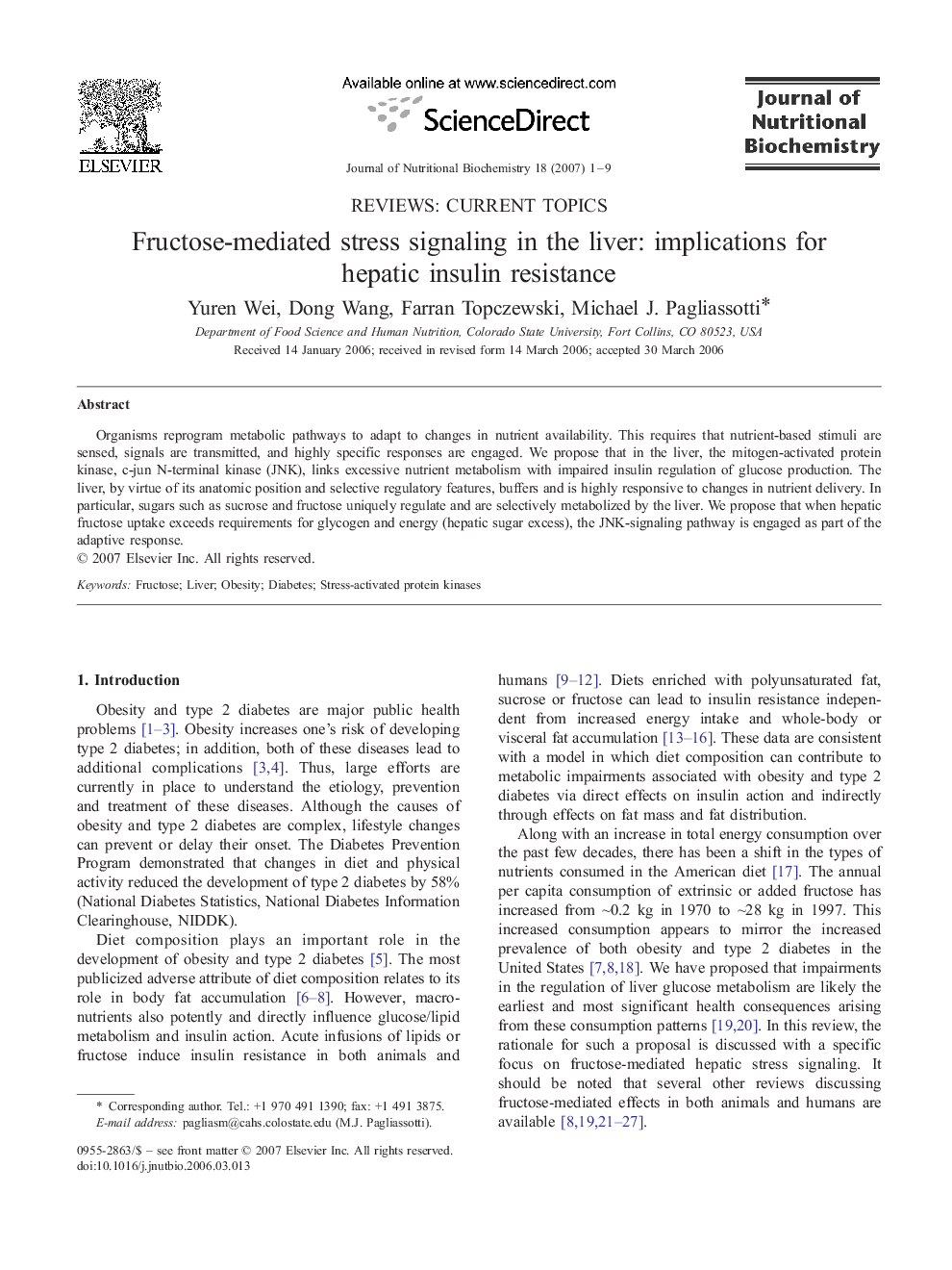| Article ID | Journal | Published Year | Pages | File Type |
|---|---|---|---|---|
| 1991093 | The Journal of Nutritional Biochemistry | 2007 | 9 Pages |
Organisms reprogram metabolic pathways to adapt to changes in nutrient availability. This requires that nutrient-based stimuli are sensed, signals are transmitted, and highly specific responses are engaged. We propose that in the liver, the mitogen-activated protein kinase, c-jun N-terminal kinase (JNK), links excessive nutrient metabolism with impaired insulin regulation of glucose production. The liver, by virtue of its anatomic position and selective regulatory features, buffers and is highly responsive to changes in nutrient delivery. In particular, sugars such as sucrose and fructose uniquely regulate and are selectively metabolized by the liver. We propose that when hepatic fructose uptake exceeds requirements for glycogen and energy (hepatic sugar excess), the JNK-signaling pathway is engaged as part of the adaptive response.
